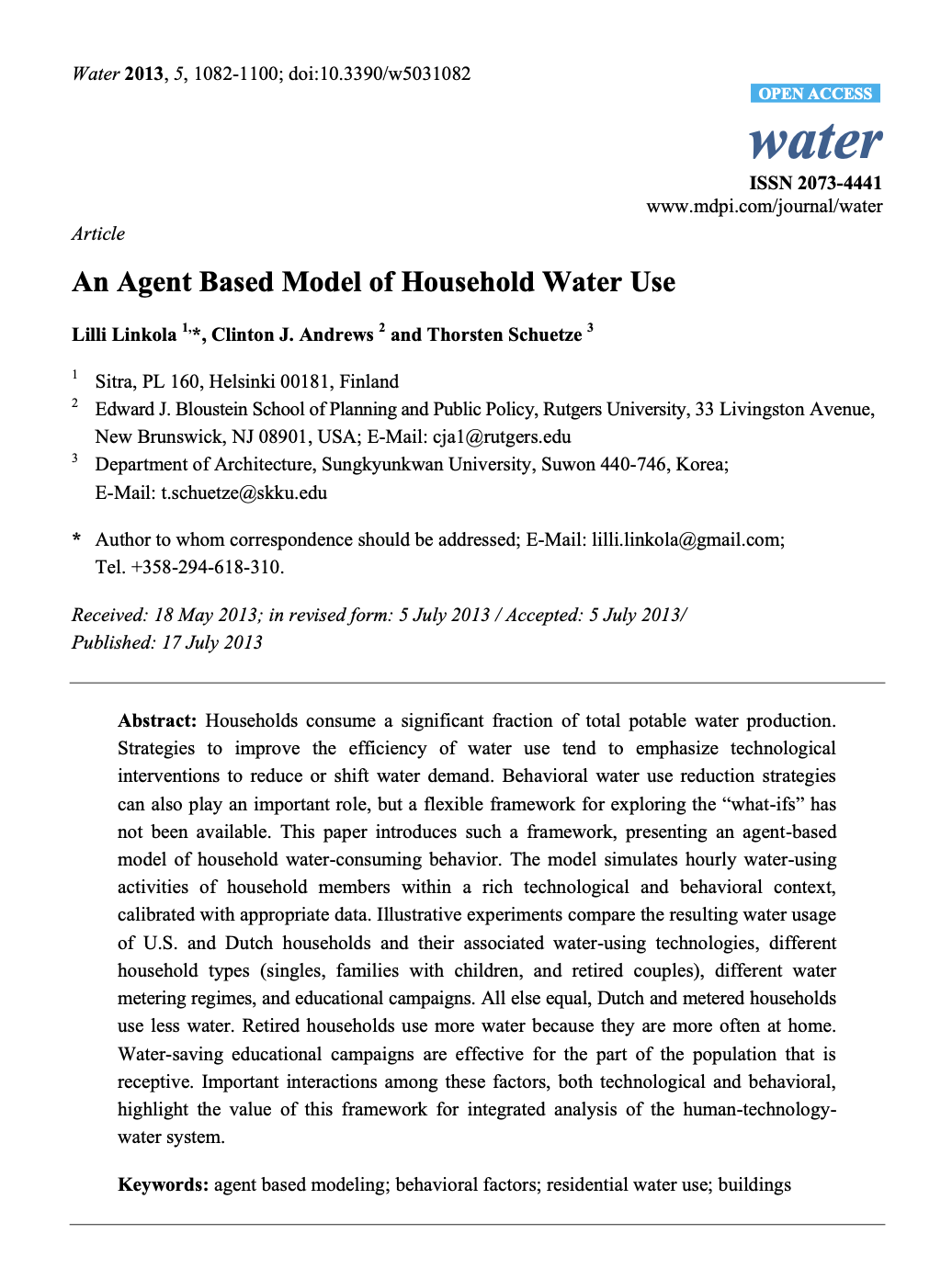Households consume a significant fraction of total potable water production. Strategies to improve the efficiency of water use tend to emphasize technological interventions to reduce or shift water demand. Behavioral water use reduction strategies can also play an important role, but a flexible framework for exploring the “what-ifs” has not been available. This paper introduces such a framework, presenting an agent-based model of household water-consuming behavior. The model simulates hourly water-using activities of household members within a rich technological and behavioral context, calibrated with appropriate data. Illustrative experiments compare the resulting water usage of U.S. and Dutch households and their associated water-using technologies, different household types (singles, families with children, and retired couples), different water metering regimes, and educational campaigns. All else equal, Dutch and metered households use less water. Retired households use more water because they are more often at home. Water-saving educational campaigns are effective for the part of the population that is receptive. Important interactions among these factors, both technological and behavioral, highlight the value of this framework for integrated analysis of the human-technology-water system.
An Agent Based Model of Household Water Use
Citation:
Linkola, Lilli, Clinton J. Andrews, and Thorsten Schuetze. An Agent Based Model of Household Water Use. Water 2013, 5. 1082-1100. Published 17 July 2013. https://doi.org/10.3390/w5031082
